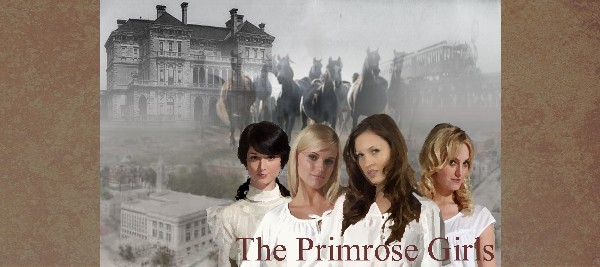December 5, 1896
Sarah Waters
Sarah Waters
I used to think of the past in terms of what happened and what did not happen. In retrospective, this was too simple a view and failed to encompass the reality of my very own experiences. How many times did Sam and I argue over how particular incidents of our childhood occurred? Granted there was often the ulterior motive of staying out of trouble to contend with but in the scope of history, there exists similar moments and it is the victor who writes the stories.
“I trust everyone is now familiar with the history surrounding the discovery of the Americas. Miss Waters, your opinion please. Was Christopher Columbus a genius or a madman?” Mr. Bard said.
The questions seemed absurd to me.
“A genius.” I replied.
“Why?” He asked.
“He overcame tremendous opposition and eventually found success although his discovery was an accident his concept of sailing west instead of east from Europe was a stroke of brilliance.” I replied.
“Our views could not be more different Miss Waters. Columbus was a drunk and a fool. He sought to find a new and faster route to the East by traveling west. Every reputable cartographer in the world understood a simple concept Columbus could not grasp. Columbus believed the earth was only a fraction of the circumference it is because he could not grasp elementary mathematics. Had he not found unexpected land he would have starved his men to death at sea. In my view, these are the actions of a madman not a genius.” Mr. Bard said.
“If his logic was known to be so fatally flawed, then why would Spain have financed his voyage?” I asked.
“Politics, Miss Waters. In 1492, Spain had nothing to lose and everything to gain from exploring the waters to the west. King Ferdinand knew Columbus’ maps were wrong but he also knew that there was the possibility of new lands waiting to be discovered. If there was a genius in the discovery of the Americas it was King Ferdinand.” Mr. Bard said.
“Are you saying it is your view that financing a madman can be genius?” I asked.
“It is my view that the difference between a genius and a madman is the side of history he lands upon.”
“I don’t understand.”
“What if Columbus had never returned from his voyage? What if his ships had all been destroyed by the hurricane they encountered? Would we recount him as anything more than a footnote in Spanish history and if not would his mark be anything more than that of a lunatic who took a hundred men to their deaths?”
“Are you saying Columbus was a madman who is wrongfully remembered as a great man?”
“His ideas were insane for his time and for ours. His discovery and survival were mere accidents. So yes, I am saying Christopher Columbus was insane and history prefers to make him a great man rather than confront the harsh reality that sometimes it takes a lunatic to help the world along.” Mr. Bard said.
Part of me wanted to continue arguing but the rest of me knew he was right. Teachers are supposed to be right, they are supposed to have the answers, maybe I forgot that after all that has happened or maybe I have learned no one is infallible. Asking the questions is not just a right, but a responsibility.
Now that my eyes have been opened I am starting to realize the past is as much an open book as the future. That is not to say the past can be changed, but it can be re-perceived in such a way as to alter the significance and repercussions of events. Dr. Phallic would recognize the dilemma as the chicken or the egg, but the real question is not what came first, but from where it came.
“Silence, Miss Waters.” Mr. Bard said. “Have you reconsidered your answer?”
“Yes. Maybe he was both.” I said.
Mr. Bard smiled.
“Now you are learning.” He said.






1 comment:
Ferdinand was a diplomat. Both Columbus and Ferdinand got what they wanted. The eccentric Columbus who naviagated in Italian miles instead of Arabic miles which meant he severely underestimated distance was allowed to undertake a trip based on a ridiculous premise to achieve Ferdinands's goal, exploration, and both succeeded. It is a bit like Ponce de Leon searching for the fountain of youth and instead discovering Miami (Does that sound like pring break?) Perhaps a better example of misguided success is chemist Nick Terrett and colleagues who sought a drug for the treatment of heart disease and instead discovered the real fountain of youth, Viagra.
Trent Tucker
author Wall Street Dancers http://www.strategicbookpublishing.com/TheWallStreetDancers.html.
Post a Comment